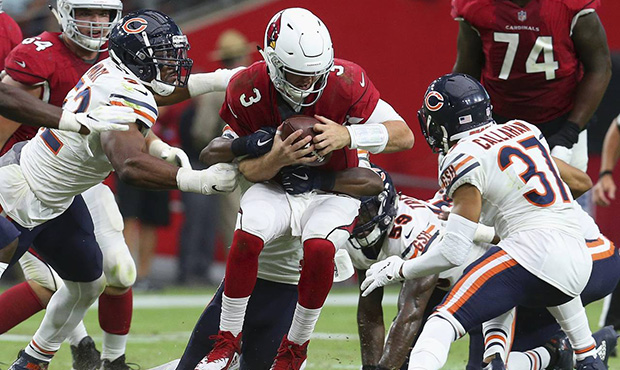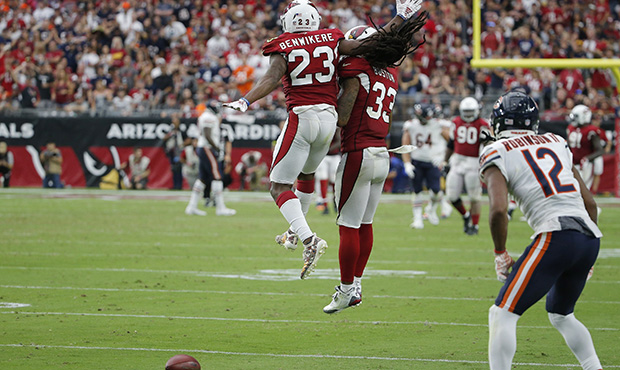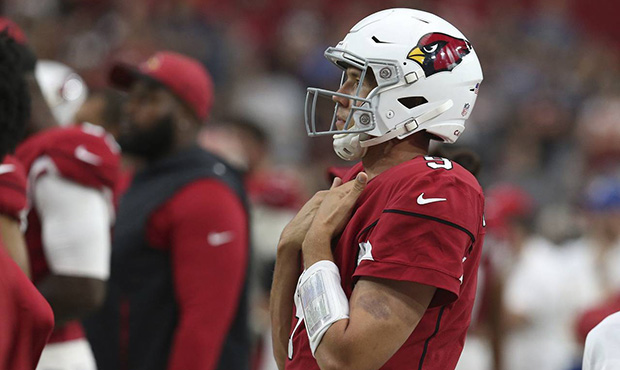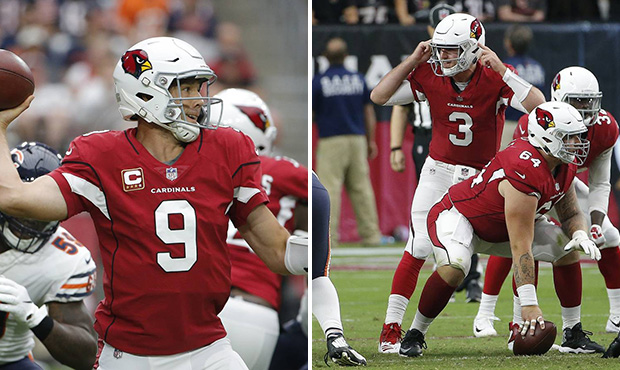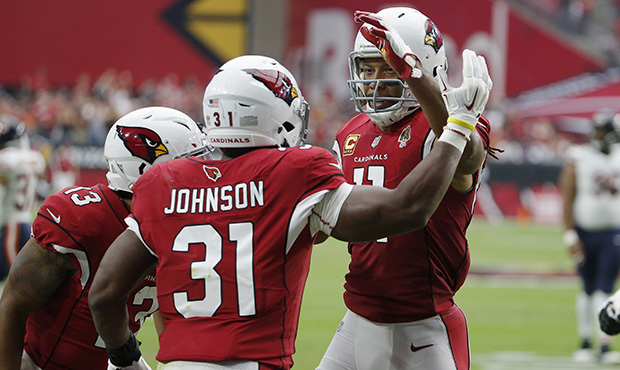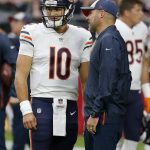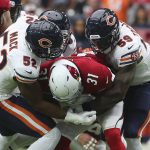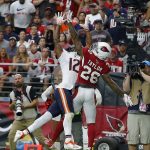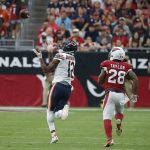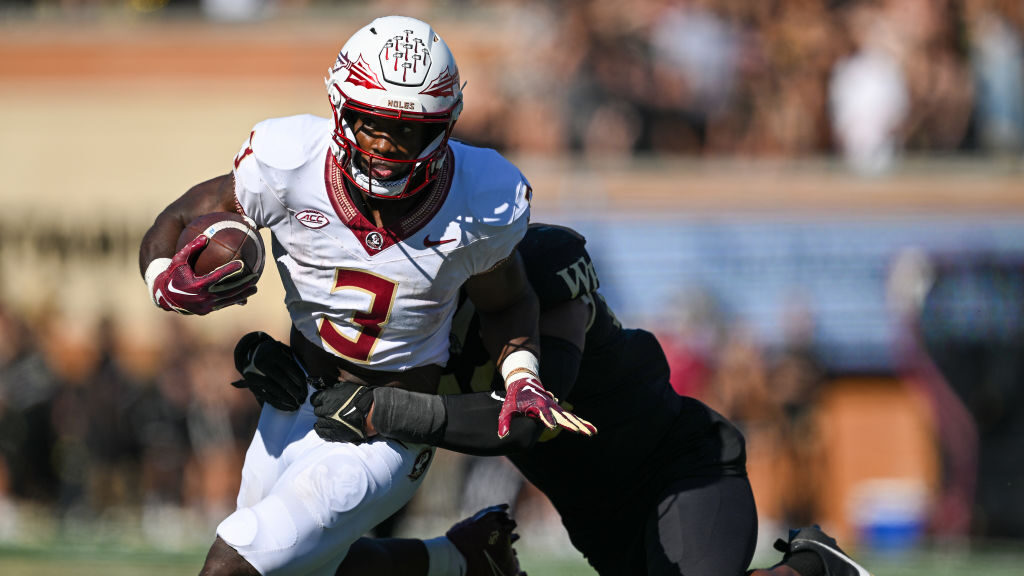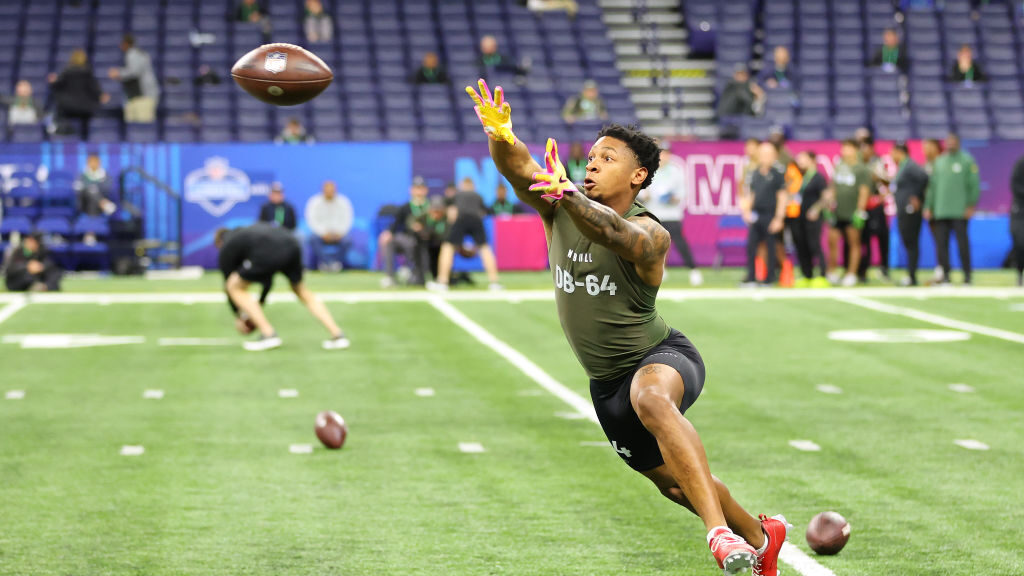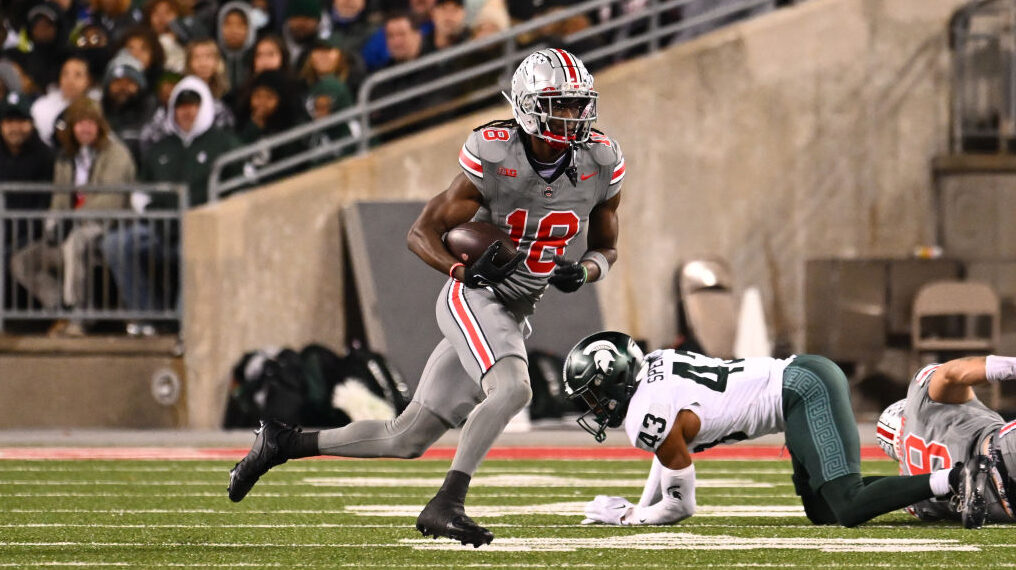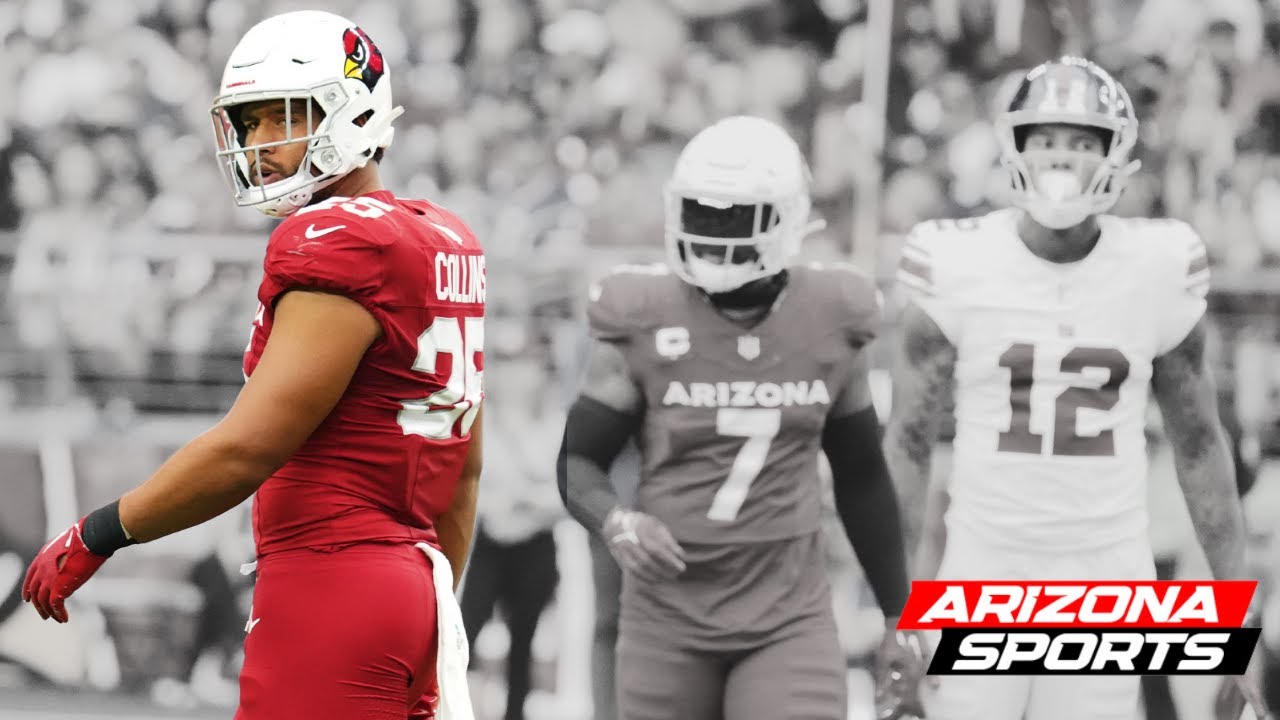Cardinals’ Wilks defends use of RB Edmonds on key 3rd down vs. Bears
Sep 23, 2018, 7:31 PM | Updated: 9:17 pm
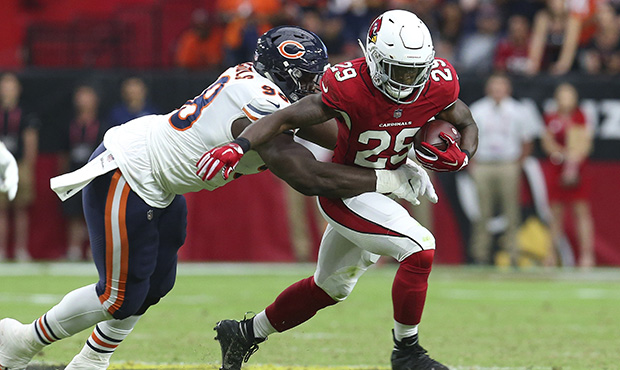
Chicago Bears defensive tackle Bilal Nichols, left, wraps up Arizona Cardinals running back Chase Edmonds (29) during the second half of an NFL football game, Sunday, Sept. 23, 2018, in Glendale, Ariz. (AP Photo/Ralph Freso)
(AP Photo/Ralph Freso)
GLENDALE, Ariz. — Even with a lead, it turns out, the Arizona Cardinals still haven’t found their offensive identity.
More specifically, they’ve yet to consistently give running back David Johnson a steady diet, be it in the passing or rushing game.
First-year head coach Steve Wilks promised he wanted a down-hill, run-oriented attack in 2018, but through three losses, including a 16-14 defeat to the Chicago Bears on Sunday, Johnson has been relatively M.I.A. for reasons mostly outside of his control.
In one of the biggest moments against Chicago, he wasn’t even on the field.
The Cardinals had just replaced starting quarterback Sam Bradford with rookie Josh Rosen, and at the Bears’ 45-yard line, it was rookie running back Chase Edmonds who lined up in the backfield on 3rd-and-2. He took a handoff with two minutes left in the game and was dropped for a three-yard loss.
“We have total confidence, number one, in Chase as well as David,” Wilks said after the game. “We got the call right there. I don’t think it was really who was in the game, it was penetration up front. Got to do a better job as far as blocking in that situation.”
The next play, Rosen threw an interception that sucked the momentum out of his debut. But the snap before that loomed larger afterward, be it for Johnson’s absence or the offensive line’s lack of blocking.
“That’s bad,” right guard Justin Pugh said. “We have to convert those.
“We are going to go back and look at the tape, judge ourselves and be critical as hell and go out there to perform next week.”
The lack of pop in the ground game has been a theme for Arizona, which rushed for just 53 yards on 2.9 yards per carry against the Bears.
The Cardinals entered the week averaging 61 rushing yards per game — second-worst in the NFL — mostly because they had ditched the ground attack looking to make up multi-touchdown deficits in their first two games.
Yet Johnson’s lack of impact compared to lofty expectation continues to be a trend. He took 12 carries for 31 yards against Chicago and caught four passes for 30 more yards, including a 21-yard touchdown to put Arizona ahead 14-0 with 1:40 to go in the first quarter.
Offensive coordinator Mike McCoy did use Johnson’s rushes to set up the play-action passing game. Bradford connected on three passes of 30 or more yards Sunday.
The first of which led to two big catches as Arizona scored a touchdown with a 75-yard opening drive. Johnson’s touchdown catch and a 32-yard strike from Bradford to Christian Kirk that set the Cardinals up on Chicago’s 23-yard line with 13 minutes to go also looked like a step forward.
“We were running the football, we were balanced and we used play-action, you know, and it was wide open,” Bradford said of connecting with Kirk, who had seven catches for 90 yards.
That success just didn’t happen enough.
Arizona had a 14-13 lead midway through the fourth quarter, but Bradford’s scramble and fumble just plays after hitting Kirk marked the end of his night as he was benched for Rosen.
While Wilks considers his options when it comes to the quarterback situation — he will watch tape to decide if Arizona will start Rosen or Bradford next week against Seattle — he knows for sure that the Cardinals need to iron out their rushing attack.
“I know personally I’ve got to do a better job of sustaining and finishing,” Pugh said. “I get on a guy and lose him late and instead of a five-, seven-yard gain, it’s a two-, three-yard gain.”


